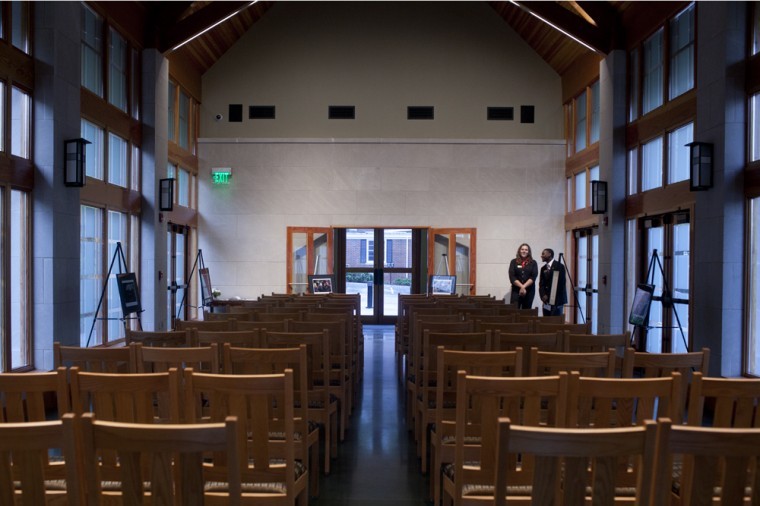9/11 remembrance ceremony hosted at WKU’s Chandler Chapel
September 11, 2011
The Chandler Memorial Chapel played host to quiet remembrance on Sunday dedicated to the lives lost on 9/11.
The event, co-sponsored by Spirit Masters and the School of Journalism and Broadcasting, provided a place for quiet reflection and reminiscing for those that attended.
Providing a peaceful place to contemplate was important to Kaylee Egerer, a senior from Rochester, Mich. For Egerer, a corresponding secretary for Spirit Masters, looking back on 9/11 is a necessity.
“It is imperative that we remember every day to take Sept. 11 and bring it into focus,” Egerer said.
The event was free and open to everyone, from students to administrators. President Gary Ransdell attended, walking around the chapel with his wife and examining the gallery of photographs and reflecting with those there.
A common theme was the question of where people were during the attacks. Many were like Atlanta junior Michelle Gilstrap, a member of Spirit Masters — in a classroom watching the events on a television.
For Gilstrap it was her fourth grade chorus class, and she can hardly believe that it has been a decade since that fateful day.
“That’s a big thing already — 10 years,” Gilstrap said.
But no matter how long it has been since the attacks, they will always be in the hearts and minds of people such as Louisville junior Curtis Spratte-Lennington.
Spratte-Lennington carried with him a small American flag and a book dedicated to the attacks and the victims that died.
Spratte-Lennington said he has always been inspired by the way New York came together in the aftermath of the crisis. For him, attending the ceremony and remembering that day is a way to both pay respect to those that died, and to reflect on how much America has overcome since then.
“I think it is poignant to have something like this,” Spratte-Lennington said. “To give a reflection of the legacy of it, and how far we’ve come as a country.”














![Students cheer for Senator at Large Jaden Marshall after being announced as the Intercultural Student Engagement Center Senator for the 24th Senate on Wednesday, April 17 in the Senate Chamber in DSU. Ive done everything in my power, Ive said it 100 times, to be for the students, Marshall said. So, not only to win, but to hear that reaction for me by the other students is just something that shows people actually care about me [and] really support me.](https://wkuherald.com/wp-content/uploads/2024/04/jadenmarshall-1200x844.jpg)


![Students cheer for Senator at Large Jaden Marshall after being announced as the Intercultural Student Engagement Center Senator for the 24th Senate on Wednesday, April 17 in the Senate Chamber in DSU. Ive done everything in my power, Ive said it 100 times, to be for the students, Marshall said. So, not only to win, but to hear that reaction for me by the other students is just something that shows people actually care about me [and] really support me.](https://wkuherald.com/wp-content/uploads/2024/04/jadenmarshall-600x422.jpg)








